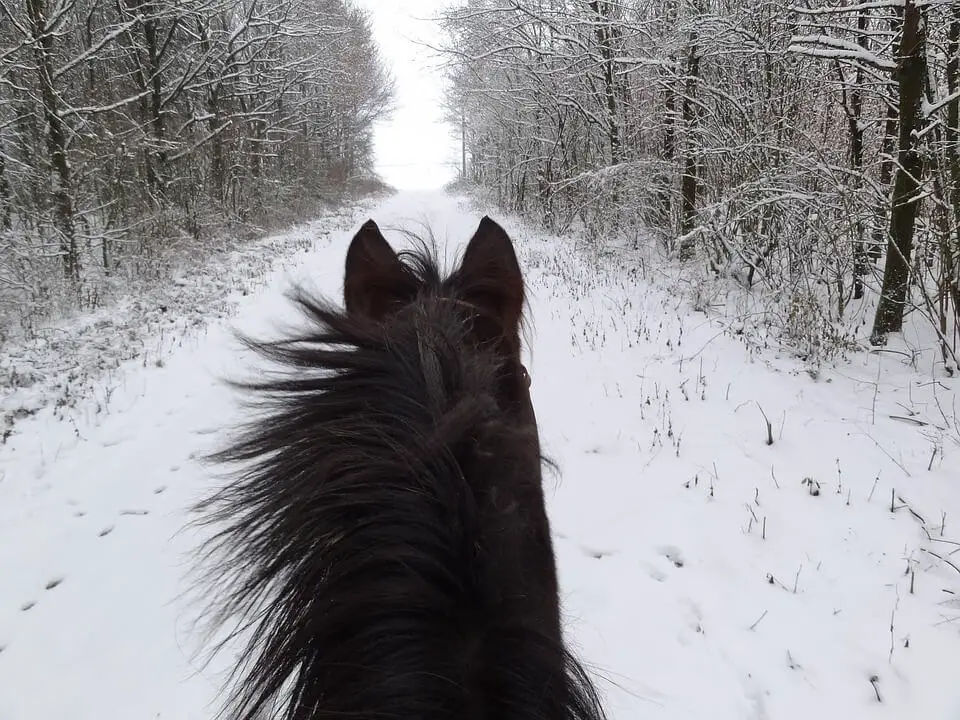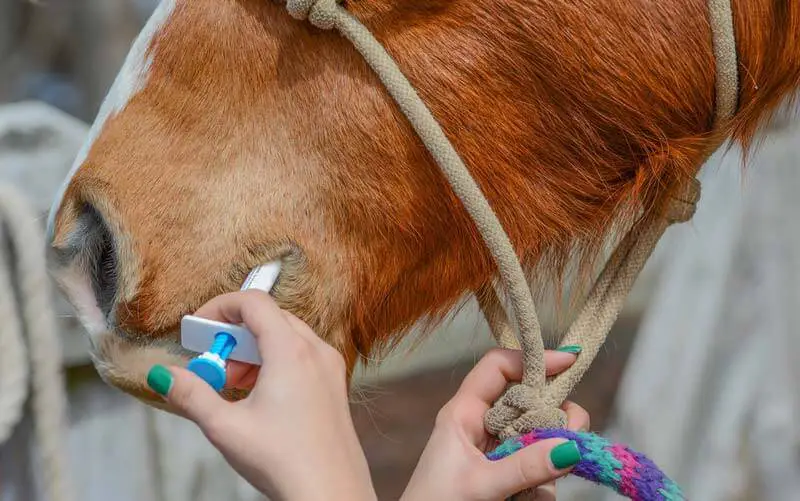
During Winter, the cooler conditions are an ideal time to maintain your horse’s fitness, improve any problems under saddle and prepare for the competition season. To ensure a safe Winter workout, we share our top three tips.
Even in Winter, active movement is essential to your horse’s health and wellbeing. Regular turnout and exercise is vital to healthy circulation, bone, soft tissue and hooves, and aids in preventing lameness and injury.
- Warm up and cool down
Before starting your Winter workouts, 10-15 minutes of warm up is crucial to loosen stiff muscles and joints. Warm up with a mixture of exercises in walk and trot, using bends, circles, gait changes and lateral movements to add variety.
Post-workout, you need to cool your horse with another 10-15 minutes of gentle exercises. Walking for 10 minutes will help to dry any sweat and clear the byproducts of exercise. If your horse is kept stabled or clipped during Winter, be sure to factor in their needs to your training regime.
- Vary the type of exercise
Tailor your Winter workouts to your chosen discipline. A dressage horse will benefit from refining their lateral work on level ground to maintain their strength and balance. Whereas a show jumper will require higher intensity cardiovascular fitness, with jumping training several times per week.
However, there are a number of exercises that all horses, regardless of discipline, will benefit from. Hill work, in particular walking hills, is ideal for building the hindquarters. You should also strive to hack out at least once a week. Hacking out gives your horse mental stimulation, while improving their condition.
- Nutrition and hydration
Finally, a well balanced diet will give your horse the energy requirements they need for athletic ability, stamina and strength, along with keeping them warm during Winter. Your horse’s ration should include low-sugar high-fibre feed and unlimited access to forage sources, such as hay or pasture, every day.
In Winter, your horse may drink less water, which can leave them dehydrated and at risk of impaction colic. Cold water can lower their body temperature, so warming water may assist in encouraging your horse to drink. To ensure a healthy water intake, your horse should be offered water before and after training.



